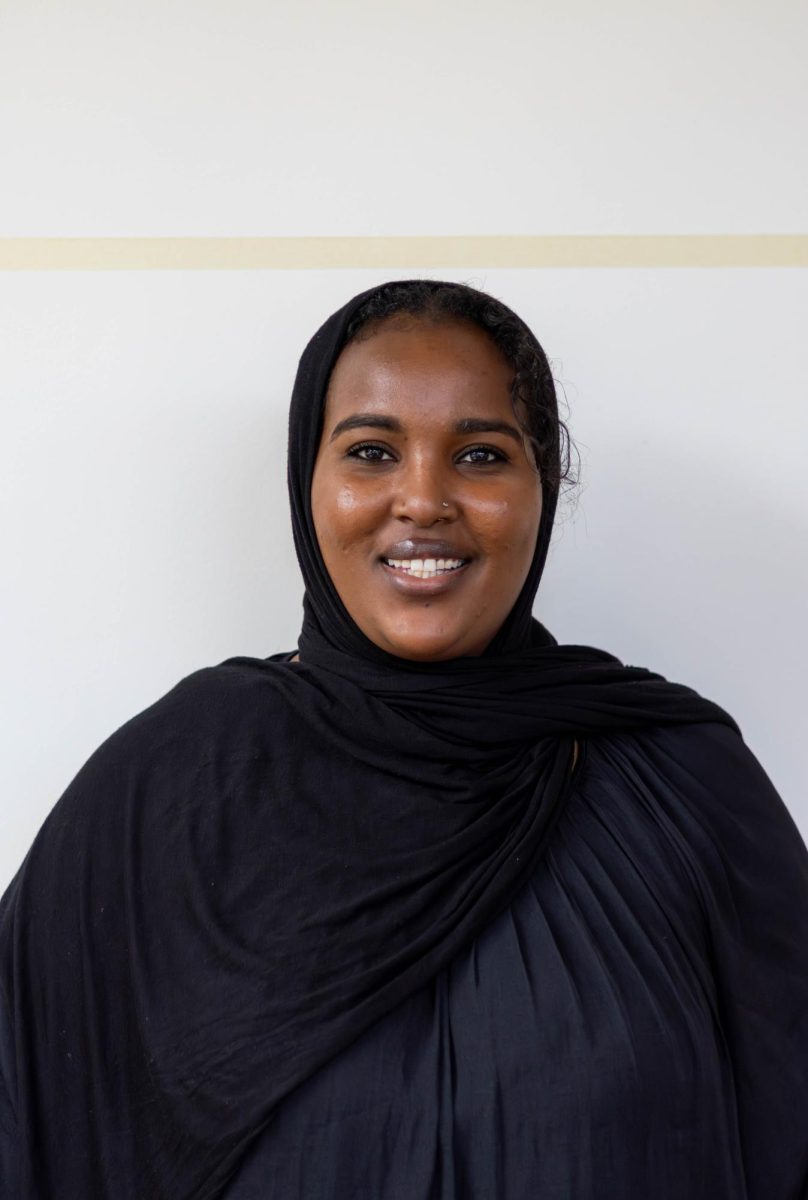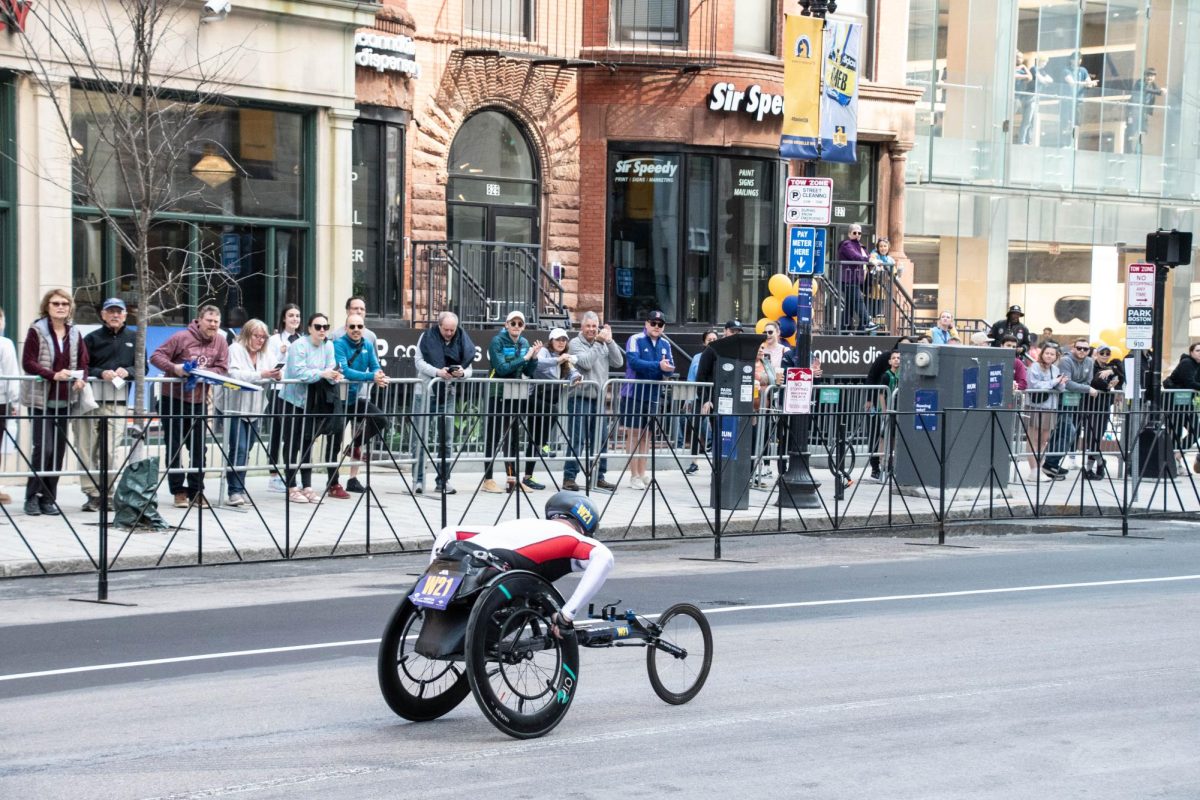
By Mary Whitfill, News Staff
An audible sigh escaped the lips of Mike Lake as he straightened his red tie and adjusted his smile, one he’d been wearing for three and a half hours by the end of his fundraiser at the Cafeteria Boston on Nov. 6.
As he greeted potential voters and answered questions from the people whom he hopes to be future constituents, Lake stood tall in his navy blue suit, embodying the quintessential politician that Massachusetts voters expect him to be.
Despite the fact that he was in one of Boston’s trendiest eateries after a long day of work, Lake hadn’t had a bite to eat since his 5:30 p.m. arrival. Instead, he smiled and shoved his hand toward a 20-something who walked through the door.
“Thank you so much, I’m really excited to be here, I’m Mike Lake,” he said for what seemed like the thousandth time that evening.
For the Northeastern graduate who declared his intention to run for lieutenant governor last month, November’s young professionals event was one of hundreds that Lake will treat as a chance to schmooze potential donors on the campaign trail.
“You want everyone to vote for you and you want almost everyone to donate to you,” Lake said. “Everything is important, it all translates into more voter contact and, hopefully, more votes.”
Vying for every dollar they can get, Lake’s team spent days planning and promoting this event, and Lake spent the whole night on his feet, contending for even a $25 donation.
“Young professionals don’t have money to spare, we aren’t here looking to find our next big sponsor,” said Lake. “Not every fundraiser is about money, the level of engagement is the most important thing.”
Lake hopes that by engaging voters and gaining support, those people will in turn help to raise or donate money.
“We try to engage anyone who is willing to give or raise,” said Lake. “We have a program called ‘Friends of Mike,’ where people have each committed to raise at least $1,000. With small dollars or big dollars you can still get there.”
This “it all adds up” mentality is a result of the 2010 US Supreme Court decision in Citizens United v. Federal
Election Commission (FEC), which greatly restricted how much individuals can donate to political campaigns. Additionally, Citizen’s United established corporations as individuals in the eyes of the law, providing big business the same sized voice in federal elections.
However, the court could overturn some restrictions as they hear yet another campaign finance case in the current term.
Originally, restrictions were set to level the political playing field – rather than campaigns being dominated by a select few affluent constituents, these spending caps sought to give the “little guy” more influence.
However, the creation of Political Action Committees (PACs) gave corporations a way to circumvent some of these restrictions and use their treasuries to influence election outcomes.
“A corporation cannot give money directly to a candidate from its treasury, but members of the corporation can donate to PACs, and then that money is given to whatever party or candidate that group supports,” said Meredith McGehee, policy director at the Campaign Legal Center. “All of that money can be legally aggregated into one account, and that money can be used to influence the outcome of elections.”
While state elections are not directly affected by these federal spending caps, Krishna Ghodiwala, deputy field director for former Boston mayoral candidate John Connolly, said the idea has trickled down.
“It looks bad if you are accepting huge donations from PACs or individuals, so people try to drum up small amounts that they hope will add up to enough to matter,” she said. “Americans don’t like to see our politicians being controlled by big money.”
With filing deadlines approaching for the 2014 United States US federal elections, candidates are closely watching the Supreme Court to develop fundraising strategies for their campaigns.
During these elections, ten Massachusetts federal representatives will be up for reelection.
McCutcheon v. Federal Election Commission, the current case being heard by the Supreme Court, challenges the every two-year $48,600 limit on contributions to all individual campaigns and $74,600 limit on political party contributions.
“Unlike Citizen’s United, McCutcheon is about aggregate limits that would affect the number of candidates someone can donate to,” said Michael Malbin, executive director of the Campaign Finance Institute. “It could open the floodgates to people donating to an unlimited number of people which could give a lot to political parties.”
In 2012, Ghodiwala witnessed firsthand how Citizen’s United affected the presidential election, as she worked closely with fundraisers in North Carolina on Barack Obama’s campaign.
“Some people are just very involved in politics and are very invested in who runs our country, which is great, but just because someone has more money than someone else doesn’t mean the less affluent person cares less,” Ghodiwala said. “These campaign restrictions let the middle-class have a say in the election instead of the 500 wealthiest Americans.”
The current court, led by conservative Chief Justice John Roberts, has shown hostility towards campaign finance limits, claiming that they, in turn, restrict American’s first amendment rights.
The case stands to change how politicians schmooze. Rather than shaking hands for hours in hopes of pulling in hundreds of dollars, private, $1,000-a-plate dinners may better represent the fundraising strategies of 2014 candidates.
“Different events give you different opportunities,” Lake said. “Prestigious events allow you engage a different type of people with more of a capacity to give, while hopefully still securing votes.”
Lake used the Nov. 6 fundraiser as an opportunity to get to know less affluent voters, but since declaring his intentions to run for public office he has also had seven private house party fundraisers hosted in his honor.
“We have to raise money, you can’t run a campaign without it,” Lake said. “But when money becomes the primary goal of a candidate, our entire system suffers – we end up with elected officials who are incompetent or don’t share our beliefs. That’s where the Citizen’s United issues come in.”













